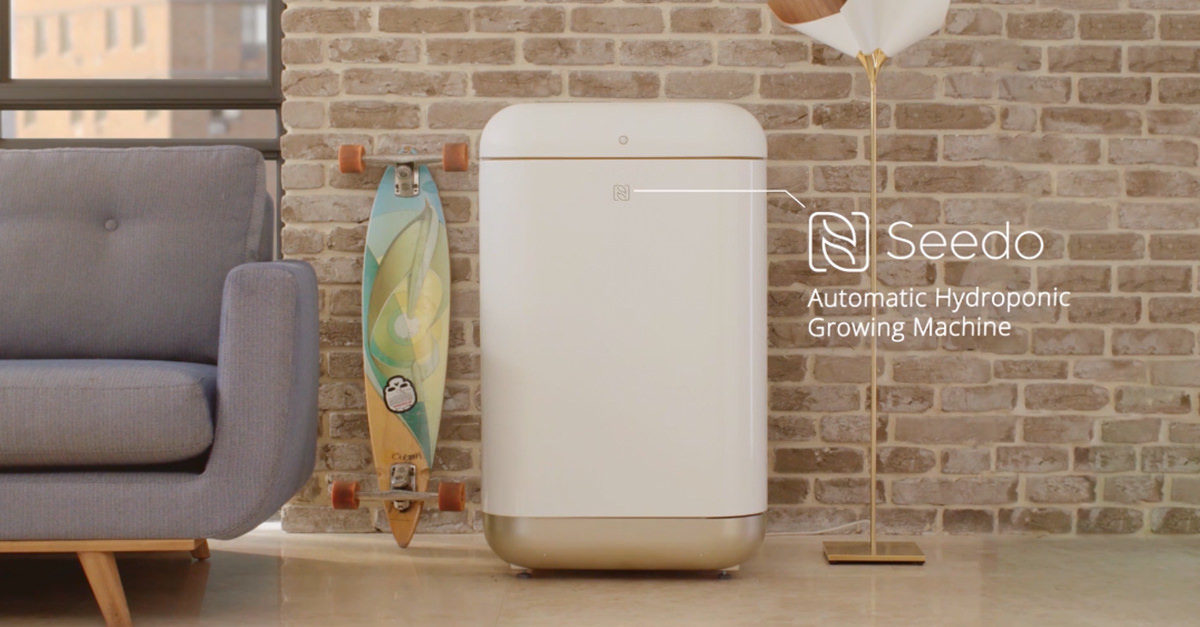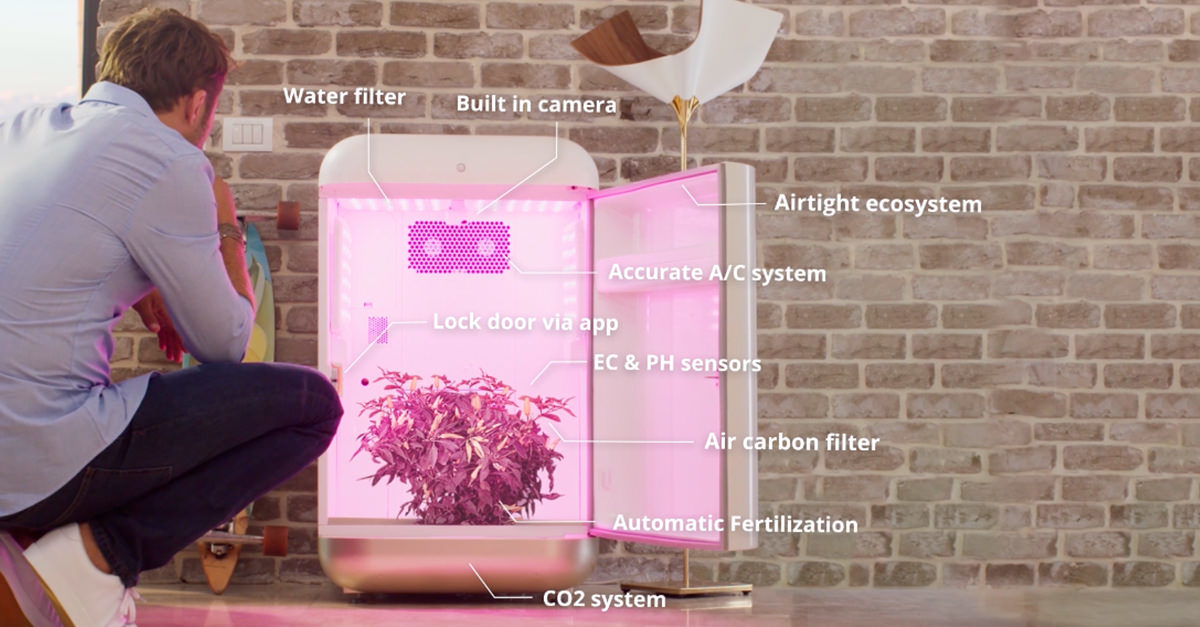Many states with medical and adult use marijuana programs allow you to grow your own plants at home — but how many of us actually have a clue about cultivating weed, let alone good weed?
That’s where “homelabs” like Seedo come in. “It does the work for you,” Uri Zeev, CEO of the Tel Aviv-based startup, tells Jane Street. “Seedo is like an auto-grow hydroponic machine. All you have to do is put the seed inside, choose the growing plan, close the door, and let it grow.”
The home device, about the size of a small mini-fridge, is connected to a phone app that allows you to monitor your plant’s progress. A camera installed in the device lets you check in from your phone on how the plant is doing without having to open Seedo’s door. In fact, it’s better not to open it at all, Zeevi says.

For the duration of the three month average grow cycle, the Seedo device regulates the plant’s environment, providing it with just the right amount of light, humidity, heat, carbon dioxide, nutrients, and water, which can be hooked up through the faucet.
Because the device is hydroponic, it doesn’t need soil, hence reducing the chance of pests. The plant goes through four stages after embedding the seed in a rockwool slab or sponge: sprouting, pre-growth, growth, and flowering. At the end of the cycle, you take the plant out of the water at the bottom part, flip it over, hang it upside down, and turn on the machine’s drying phase.
The system has room for one plant every grow cycle, which can yield around three ounces of bud. Depending on the strain, you can milk three or four cycles a year. Each strain has different needs and characteristics, which can make growing weed such a dynamic hobby. The seeds aren’t included with Seedo, but you can find plant clones or seeds at some dispensaries, as well as online. Seeds can also be obtained from plant cones.

And for those looking to branch outside cannabis, Seedo can be used for other plants too, including fruits, vegetables, and flowers. “Basically the machine can grow any type of greens — lettuce, kale, parsley, dill, flowers, tomatoes — but whoever wants to grow cannabis should only buy it where they can,” says Zeevi, though the device is marketed around the world.
Currently Seedo will be available for pre-order in June for the price of $1,600. After that, it will be $2,400. People will be able to obtain them toward the end of the year.
Seedo isn’t the only company to offer an automatic home grow device and connected app. Another Israeli company called Leaf offers a similar product. Both offer the inexperienced access to a hobby that’s otherwise complex and difficult.
“We say that our farmers don’t need to wake up at four o’ clock in the morning,” jokes Zeevi. “They can wake up at ten, check the app, and go back to sleep.”





